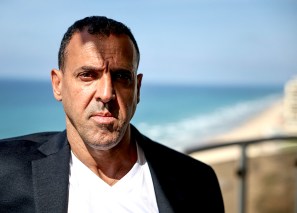The leader of the opposition found it difficult to land her punches in Wednesday’s Prime Minister’s Questions, with Kemi Badenoch not quite able to work out how she wanted to attack Sir Keir Starmer. The Prime Minister fended off a number of issues from the Tories, from the economy to the Chagos Islands to Gerry Adams – but in the end it was a question from his own side that threw the Labour leader off balance.
It wasn’t the usual soft questioning the Prime Minister might have expected from his own party when new Labour MP Brian Leishman stood up to speak. The left-leaning politician for Alloa and Grangemouth – who managed to push out SNP incumbent John Nicolson in July – lambasted the Labour leader for failed promises on the Grangemouth refinery, noting that the party pledged during the election campaign to ‘step in and save’ the oil factory. ‘If the refinery closes then thousands of jobs will be lost and Scotland’s national security will become massively weaker,’ the Labour MP said. Quizzing Sir Keir, he demanded to know whether the Prime Minister would ‘deliver on the promise to build Grangemouth for the future’ – leaving Starmer scrambling.
Last year refinery company Petroineos confirmed that the UK’s oldest refinery would close, resulting in a loss of around 400 jobs. While Starmer pointed to the funding both the Labour party and the SNP-led government at Holyrood are directing towards the centre’s transition – promising a ‘viable long-term future’ for current workers – the Prime Minister didn’t quite manage to offer the assurances that Leishman was looking for, with the MP remarking afterwards that he was ‘incredibly disappointed’ at his own party.
The Scottish Labour group is becoming increasingly frustrated about the extent to which Keir Starmer’s performance is turning off voters north of the border.
The matter has formed key dividing lines in Scotland, with the late Alex Salmond’s Alba party putting pressure on the Scottish government to ‘restart’ the plant – adamant that the closure of Grangemouth would result in Scotland becoming the only country ‘out of the world’s top 25 oil producing nations not to have its own oil refining capacity’. Meanwhile Unite the Union has written to Energy Secretary Ed Miliband over the issue, insisting it would be a ‘huge dereliction of duty’ if Labour didn’t intervene with the site’s closure. Union leaders are certainly keeping a close eye on Grangemouth, viewing decisions made about the future of the refinery as ‘key test’ for Starmer’s government’s commitment to a just transition for industry workers.
With hundreds of jobs at risk, the future of Grangemouth is a real problem for Scottish Labour if the party’s UK counterparts don’t act quickly enough. Polling shows Anas Sarwar’s group is already struggling to win over voters ahead of the 2026 Holyrood election, with the Scottish Labour leader not deemed popular enough to convince the public to back him in the face of scepticism about the UK government’s performance already. In recent Survation analysis for True North, the party is predicted to receive only a fifth of the public vote, with polling guru Sir John Curtice suggesting Sarwar’s group may only pick up two seats– dashing any hopes of a Labour First Minister in Holyrood next year.
In that vein, the MSP group is becoming increasingly frustrated about the extent to which Starmer’s performance is turning off voters north of the border, while there is a growing annoyance among Scottish Labour MPs about their Holyrood group’s tactic of going off-message – on issues like compensation for Waspi women and the winter fuel payment – which Scottish Labour insiders say is necessary to appeal to a different voter base up north. But with the constitutional question tending to play a bigger role in Holyrood polls, Scottish Labour are already fighting an uphill battle, never mind confusion about job losses under a Labour government in Westminster. Sarwar has already been criticised about his party’s ‘failed commitment’ on Grangemouth. Starmer’s non-committal response yesterday is unlikely to ease tensions between the groups – or better his Scottish party’s electoral prospects.







Comments